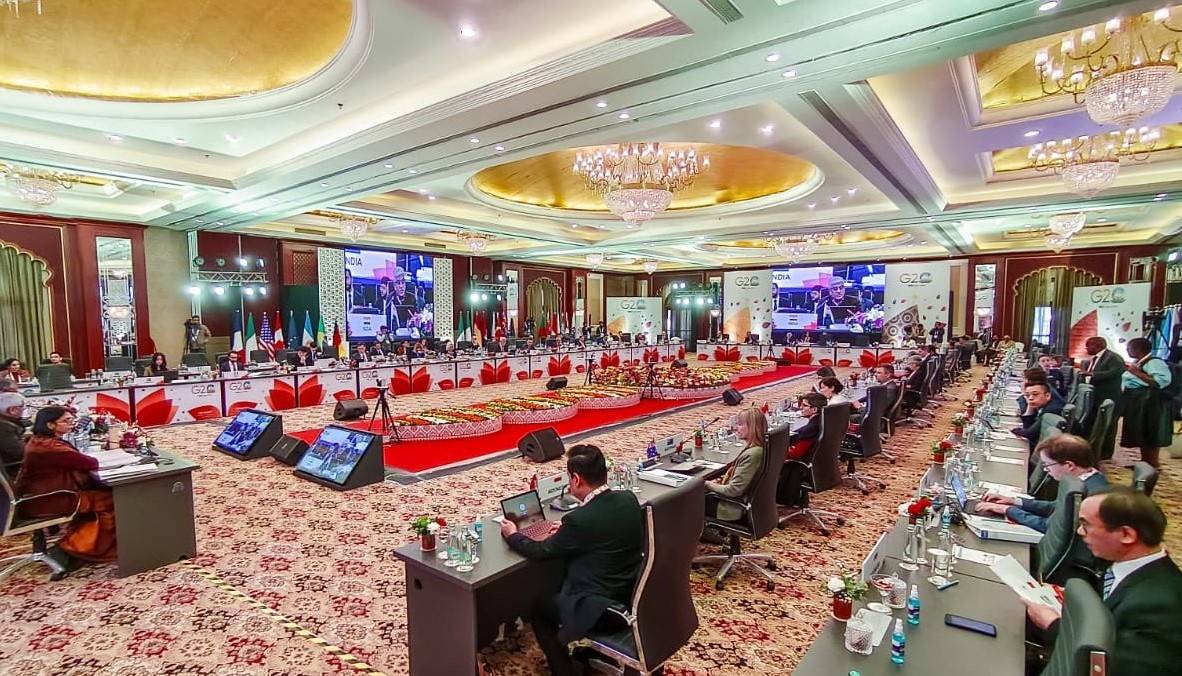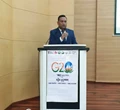
The key environmental concerns that will be addressed during India's G20 presidency are land degradation, biodiversity loss, marine pollution, the need to protect mangroves and coral reefs, resource overconsumption, and a lack of waste absorption, according to the Union Environment Ministry on February 6.
The first meeting will be held in Bengaluru on February 9-11, the second in Gandhinagar on March 27-29, the third in Mumbai on May 21-23, and the fourth in Chennai on May 26-27.
The group's ministerial meeting is scheduled for July 28 in Chennai. "There is an urgent need to stop land degradation, biodiversity loss, and ecosystem restoration because 23% of the global land area is no longer productive for agricultural use due to resource extraction and waste," said Additional Secretary Richa Sharma.
According to the WWF's Living Planet Report, which will be released in September 2020, the population of mammals, birds, amphibians, reptiles, and fish has declined by 68% on average since 1970. The second priority is to promote a sustainable and climate resilient blue economy, according to the official, who added that India is nearing the end of developing a blue economy policy.
"This is an important issue that we hope to carry forward from the Indonesian presidency. So, issues such as marine pollution and the need to protect mangroves and coral reefs will be discussed during the Indian presidency "She stated.
In addition, India wants to draw attention to the specific issue of marine litter and will organise a coordinated beach cleaning drive on May 21 that will include all G20 members and guest countries. The third priority is to promote resource efficiency and the circular economy, which is another major policy priority for the Indian government.
According to the ministry, the ECSWG meeting will build on the work already done by the United Nations Environment Assembly and the three Rio Conventions: the United Nations Framework Convention on Climate Change, the Convention on Biological Diversity, and the United Nations Convention to Combat Desertification.
It will also use Mission LiFE to help the G20 countries define a new, sustainable, and resilient development paradigm. The ECSWG meetings will focus on bringing an integrated, comprehensive, and consensus-driven approach to addressing climate change and pursuing sustainable growth during India's presidency.
"Naturally, we desired that the key issues addressed in the three Rio conventions be reflected... As a result, issues such as land degradation, climate change, and biodiversity conservation are reflected in the Indian presidency's priorities," Sharma stated.
"We also wanted to implement an integrated approach, which means we wanted to address climate change as it affects biodiversity and leads to land degradation, rather than in silos," she explained.
"Typically, countries have addressed environmental issues through a meeting of environment deputies and climate issues through a meeting of a climate sustainability working group. We attempted to bring it together," She stated. To arrive at its conclusions, the Indian presidency seeks to encourage discussions, inputs, and reflections from all G20 countries.
When asked if climate finance issues would be discussed, Leela Nandan, secretary in the environment ministry, said: "To address climate finance requirements, there must be some discussion, understanding, and a stronger resolve, and there is a dedicated (sustainable) finance working group for that. Climate finance is a critical issue that is being discussed (in that group)."










